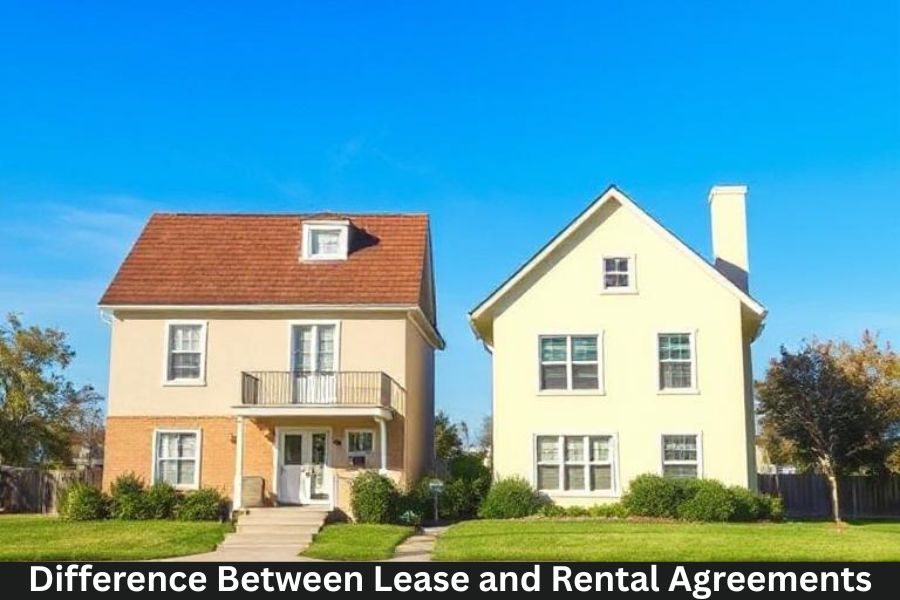When it comes to securing property for either business or personal use, you’ll encounter terms like “lease” and “rental agreement.” These are legal documents that outline the terms of property use, but they are not identical. Understanding the differences between the two can save you time, money, and confusion. Whether you’re renting an apartment, leasing a car, or considering an agreement for office space, knowing the subtle distinctions is essential.
What Are Lease and Rental Agreements?
Before diving into the details, it’s important to first understand what a lease and a rental agreement are. Both serve as contracts between a landlord (or property owner) and a tenant (or renter) but vary in terms of duration, flexibility, and conditions.
- Lease Agreement: Typically a long-term contract, often lasting 12 months or more. It locks in the rent amount and terms for the entire lease period.
- Rental Agreement: Usually a short-term agreement that can last month-to-month, providing more flexibility for both parties.
Understanding these key differences helps clarify which option best fits your needs.
Lease Agreement: An In-Depth Look
What Is a Lease Agreement?
A lease agreement is a formal contract between a tenant and a landlord that spans a specific period, often one year or longer. The tenant agrees to pay a fixed rent for the entire term, and the landlord commits to providing the property for the duration.
Key Characteristics of a Lease Agreement
- Fixed Term: A lease is typically for a set duration (e.g., 12 months), providing stability for both parties.
- Fixed Rent: The rent remains the same for the duration of the lease term.
- Limited Flexibility: It can be more rigid, with penalties for breaking the lease early.
- Long-Term Commitment: Leases usually require a significant commitment, making them ideal for tenants planning to stay in one place for a while.
Rental Agreement: What You Need to Know
What Is a Rental Agreement?
A rental agreement is a short-term contract between the tenant and landlord, typically lasting one month. It renews automatically, unless either party decides to terminate it.
Key Characteristics of a Rental Agreement
- Short-Term: Usually lasts month-to-month, providing flexibility for tenants who may not want to commit to a long-term lease.
- Variable Rent: Rent prices may change from month to month, with the landlord typically having the right to increase rent with proper notice.
- Easy Termination: With a rental agreement, tenants often have more freedom to move out without penalty.
Lease vs. Rental Agreement: The Core Differences
Duration of Agreement
- Lease: Fixed duration, typically 12 months or more.
- Rental Agreement: Short-term, usually renewed monthly.
Rent Stability
- Lease: Rent is fixed for the entire term of the lease.
- Rental Agreement: Rent may fluctuate from month to month.
Flexibility
- Lease: Less flexible, as tenants are committed for the lease term.
- Rental Agreement: More flexibility, as tenants can move out with shorter notice.
Termination Process
- Lease: Breaking a lease can result in penalties or loss of the security deposit.
- Rental Agreement: Easier to terminate, often with just 30 days’ notice.
Which One Should You Choose?
5.1 When to Choose a Lease Agreement
- Long-Term Stability: If you plan to stay in one place for a year or longer, a lease may provide the stability and cost predictability you need.
- Fixed Rent: If you prefer knowing exactly what your rent will be for the next year, a lease agreement is the way to go.
When to Choose a Rental Agreement
- Short-Term Flexibility: If you’re unsure about your plans or may need to relocate quickly, a rental agreement offers the freedom to move with minimal commitment.
- Less Long-Term Commitment: Perfect for individuals in transitional phases or who are testing out a new area.
Benefits of Lease Agreements
Stability in Rent Pricing
A lease locks in your rent amount for the term, meaning you won’t be caught off guard by unexpected increases. This is great for budgeting.
Predictability of Terms
With a lease, you know exactly what to expect in terms of rent, maintenance responsibilities, and renewal conditions.
Legal Protections for Both Parties
A lease is a legally binding contract, offering protection for both tenant and landlord. It ensures that the terms are enforced for the entire period.
Benefits of Rental Agreements
Flexibility to Move
One of the biggest advantages of a rental agreement is the freedom it offers. If you’re in a new city or unsure about your long-term plans, a rental agreement allows you to leave with relatively little hassle.
Short-Term Commitment
A rental agreement is ideal for people who are staying temporarily or for those whose circumstances might change soon.
Common Pitfalls in Lease and Rental Agreements
Hidden Fees and Charges
Both types of agreements might contain clauses that result in unexpected fees, like maintenance costs, late payment charges, or early termination fees. Always read the fine print!
Maintenance Responsibilities
Ensure you know who is responsible for maintenance under either agreement, as some landlords may expect tenants to handle certain repairs.
Automatic Renewals
For rental agreements, check whether it includes an automatic renewal clause, which could lock you into the agreement if you don’t terminate it in time.
Legal Considerations
Tenant Rights
Both lease and rental agreements provide tenants with certain legal protections, but the specifics can vary by jurisdiction. Always ensure your rights are clearly defined in the contract.
Lease Violations and Consequences
If you break a lease or fail to meet certain terms, you could be legally required to pay penalties or forfeit your security deposit.
FAQs About Lease and Rental Agreements
What happens if I break a lease early?
Breaking a lease early can result in penalties, such as paying for the remaining rent or losing your security deposit. However, it may be possible to negotiate with your landlord, especially if you provide adequate notice.
Can a landlord raise the rent in a lease agreement?
In most cases, the rent cannot be raised during the lease term unless the agreement allows it. Once the lease ends, the landlord can increase the rent for the next term.
Can I negotiate the terms of a lease or rental agreement?
Yes, both leases and rental agreements are negotiable. Before signing, you can discuss rent prices, pet policies, or maintenance responsibilities with the landlord.
Is a rental agreement the same as a month-to-month lease?
Yes, a month-to-month lease and a rental agreement are similar in that they provide flexibility and can be terminated with shorter notice.
Do I need to provide a security deposit for a rental agreement?
Yes, most rental agreements require a security deposit, just like lease agreements, to cover potential damages or unpaid rent.



